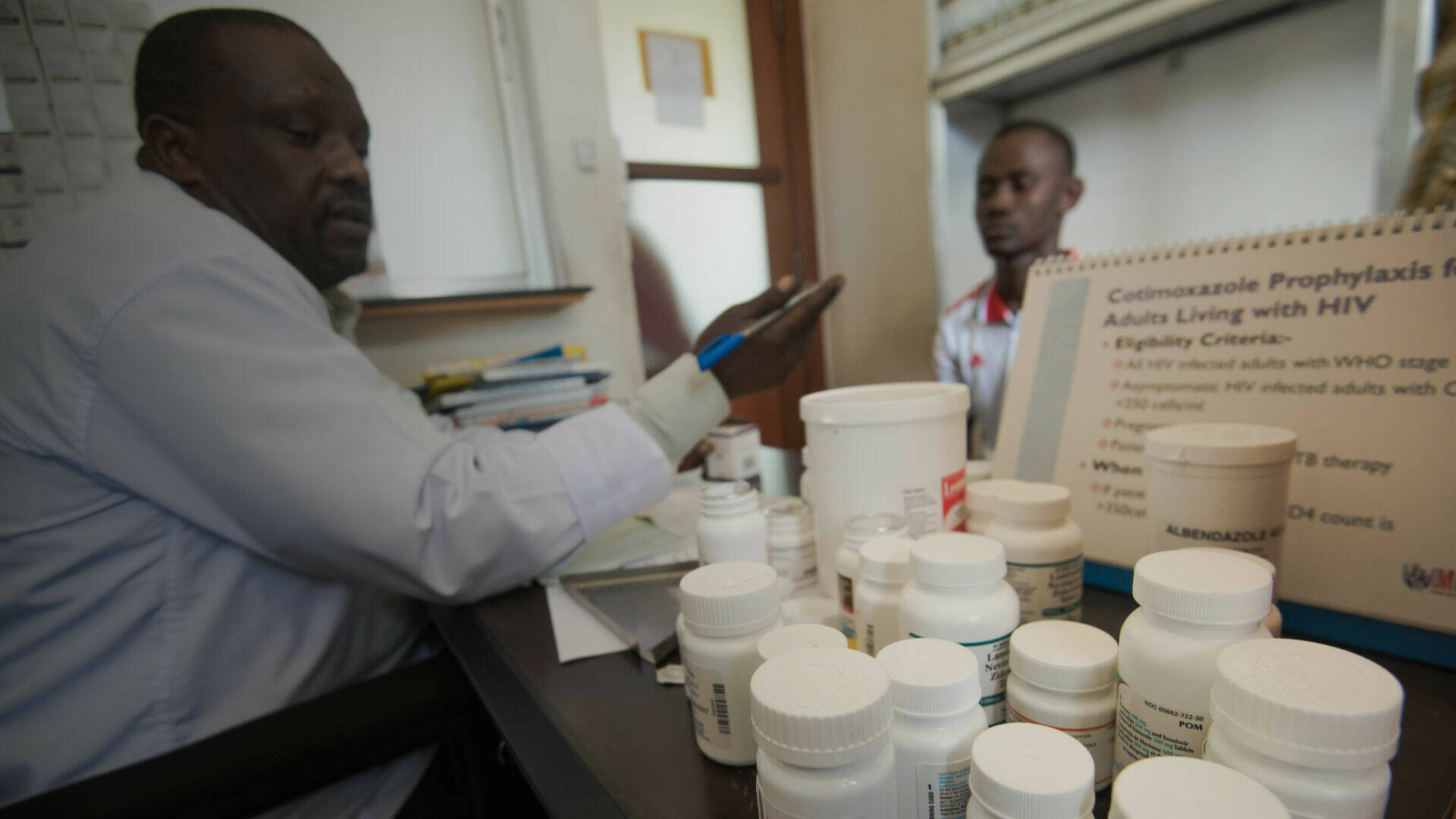

Case study 1
Project: AMBITION-cm trial
Project lead: Professor Jo Jarvis, London School of Hygiene and Tropical Medicine, UK
Countries involved: Botswana, France, Malawi, South Africa, Uganda, United Kingdom, Zimbabwe
Target population(s): Adults with HIV
Year funded: 2017
EDCTP funding: €9.9 M
Grant agreement: TRIA2015-1092
Infection of the brain by Cryptococcus, a fungal pathogen, can lead to a potentially fatal meningitis. Globally, cryptococcal meningitis is the second most common HIV-related cause of death, and most deaths occur in sub-Saharan Africa. Current treatment is based on a one-week course of two drugs, amphotericin B deoxycholate and flucytosine. However, use of amphotericin B deoxycholate is associated with blood, kidney and other abnormalities, requiring careful patient monitoring, which may not be feasible in many resource-poor settings where the burden of disease is highest.
The AMBITION-cm team has been evaluating an alternative formulation of amphotericin B, delivered in tiny lipid-based packages (liposomes), which would be more suitable for resource-poor settings. A phase II study already showed that a single high dose of liposomal amphotericin B (AmBisome®) given with 14 days of flucytosine and fluconazole is non-inferior to the current standard of care of seven days of amphotericin B plus seven days of flucytosine, followed by seven days of fluconazole, in the treatment of HIV-associated cryptococcal meningitis (CM).
The AMBITION-cm trial is the largest HIV-associated cryptococcal meningitis treatment trial ever undertaken. The phase III AMBITION-cm trial, in five African countries, compared use of single-dose liposomal amphotericin B and flucytosine with the current recommended treatment, recruiting 844 patients with confirmed cryptococcal meningitis. Survival was not markedly different in the two arms (24.8% mortality in the liposomal amphotericin B group versus 28.7% in the control group) and fewer serious side effects were seen with liposomal amphotericin B.
These results, in the New England Journal of Medicine on 23 March 2022, argue in favour of use of liposomal amphotericin B, which would be easier to deliver in resource-poor settings, have fewer treatment complications and could potentially reduce the duration of hospital stays for some patients. Furthermore, with the study conducted across five countries in southern and eastern Africa, the results should be generalisable across the region. In April 2022, the WHO issued a rapid advice to update guidance on treatment of cryptococcal meningitis based on the findings of the AMBITION-cm study.
Moreover, the AMBITION-cm project published an economic analysis in The Lancet Global Health demonstrating the cost and cost-effectiveness of the single, high-dose liposomal amphotericin (L-AmB) regimen for cryptococcal meningitis in five countries in Eastern and Southern Africa.
scroll down

scroll down
Case study 1

Infection of the brain by Cryptococcus, a fungal pathogen, can lead to a potentially fatal meningitis. Globally, cryptococcal meningitis is the second most common HIV-related cause of death, and most deaths occur in sub-Saharan Africa. Current treatment is based on a one-week course of two drugs, amphotericin B deoxycholate and flucytosine. However, use of amphotericin B deoxycholate is associated with blood, kidney and other abnormalities, requiring careful patient monitoring, which may not be feasible in many resource-poor settings where the burden of disease is highest.
The AMBITION-cm team has been evaluating an alternative formulation of amphotericin B, delivered in tiny lipid-based packages (liposomes), which would be more suitable for resource-poor settings. A phase II study already showed that a single high dose of liposomal amphotericin B (AmBisome®) given with 14 days of flucytosine and fluconazole is non-inferior to the current standard of care of seven days of amphotericin B plus seven days of flucytosine, followed by seven days of fluconazole, in the treatment of HIV-associated cryptococcal meningitis (CM).
The AMBITION-cm trial is the largest HIV-associated cryptococcal meningitis treatment trial ever undertaken. The phase III AMBITION-cm trial, in five African countries, compared use of single-dose liposomal amphotericin B and flucytosine with the current recommended treatment, recruiting 844 patients with confirmed cryptococcal meningitis. Survival was not markedly different in the two arms (24.8% mortality in the liposomal amphotericin B group versus 28.7% in the control group) and fewer serious side effects were seen with liposomal amphotericin B.
These results, in the New England Journal of Medicine on 23 March 2022, argue in favour of use of liposomal amphotericin B, which would be easier to deliver in resource-poor settings, have fewer treatment complications and could potentially reduce the duration of hospital stays for some patients. Furthermore, with the study conducted across five countries in southern and eastern Africa, the results should be generalisable across the region. In April 2022, the WHO issued a rapid advice to update guidance on treatment of cryptococcal meningitis based on the findings of the AMBITION-cm study.
Moreover, the AMBITION-cm project published an economic analysis in The Lancet Global Health demonstrating the cost and cost-effectiveness of the single, high-dose liposomal amphotericin (L-AmB) regimen for cryptococcal meningitis in five countries in Eastern and Southern Africa.
Project: AMBITION-cm trial
Project lead: Professor Jo Jarvis, London School of Hygiene and Tropical Medicine, UK
Countries involved: Botswana, France, Malawi, South Africa, Uganda, United Kingdom, Zimbabwe
Target population(s): Adults with HIV
Year funded: 2017
EDCTP funding: €9.9 M
Grant agreement: TRIA2015-1092
